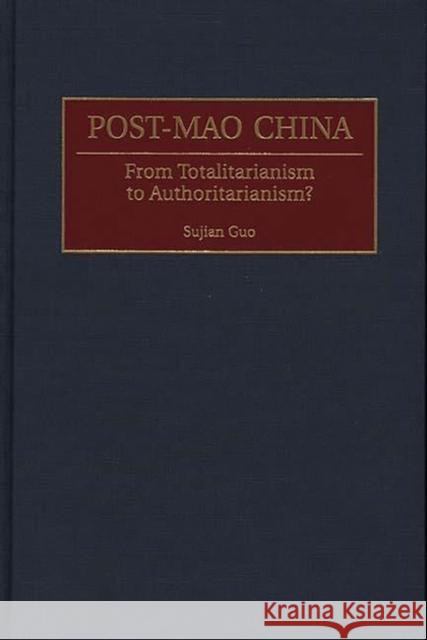Post-Mao China: From Totalitarianism to Authoritarianism? » książka
Post-Mao China: From Totalitarianism to Authoritarianism?
ISBN-13: 9780275967802 / Angielski / Twarda / 2000 / 240 str.
Guo challenges the predominant view that post-Mao China has moved away from communist totalitarianism and that totalitarianism is an outdated paradigm for China studies. He seeks to reconstruct a plausible macro-model in conceptual and comparative terms for defining regime identity and assessing the nature of regime change. Professor Guo then applies the model to the study of regime change in post-Mao China and reevaluates post-Mao changes across the five major empirical aspects of regime change (political, ideological, economic, legal, and social) and the most critical dimensions of each.
The findings of Guo's study demonstrate that the practice of post-Mao reforms remains rooted in and committed to the hard core of Chinese communist totalitarianism and that the regime has attempted to revive many typical totalitarian practices. Most essential or core elements of the idea, practice, and institution of totalitarianism remain essentially unchanged in all major aspects of the post-Mao regime, though the post-Mao regime does suffer from a certain degree of regime weakening in its adjustments of the action means or protective belt of defending the hard core of the communist totalitarian regime. A controversial and essential analysis for scholars, researchers, and policy makers involved with contemporary China.











